Gujarati Malaysians, who originated from Gujarat, northwest India, have stamped their mark as excellent businesspersons and renowned professionals.
Indeed, the Gujaratis are highly regarded for their diligence, exceptional business acumen and extensive community-based network.
In the case of Malaysia, the story of the Gujaratis – numbering about 9,000 and concentrated mainly in Kuala Lumpur, Penang, Malacca, Ipoh, Seremban and Klang – is essentially that of a small but enterprising and industrious community that punches far above its weight.
The Gujaratis have contributed significantly towards the economic development of our nation.
Gujarati Malaysians can be divided into three main groups according to their faith: Gujarati Hindus, Gujarati Muslims (mainly Vohras or Bohras and Khojas) and Gujarati Jains.
Historical evidence of the community’s entrepreneurial zeal can be traced to their early origins in the Malay archipelago since at least the 14th century. Enterprising Gujarati merchants were already sailing down the west coast of Sumatra and went as far east as Gresik, east Java.
Their history
Subsequently, during the 15th century as stated by 16th-century Portuguese writer, Tomé Pires in his “Suma Oriental”, there were about 1,000 Gujarati merchants residing in Malacca, besides about 4,000 or 5,000 Gujarati seapersons who were constantly shuttling between Gujarat and Malacca.
Malacca was then an international entrepot for commodities exchange with no less than 84 languages spoken in its marketplace.
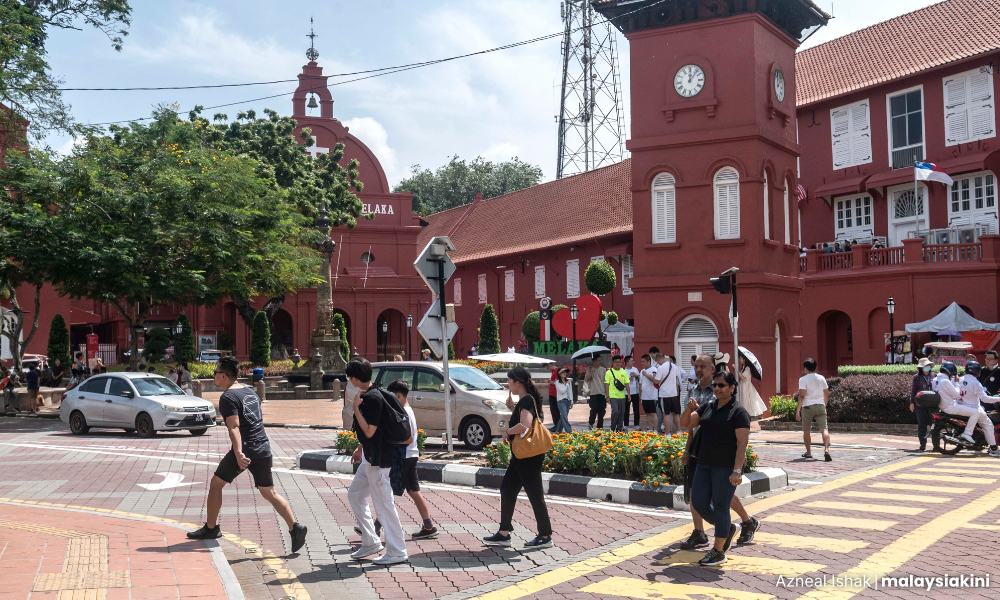
The Gujarati merchants mainly traded cotton textiles, indigo and medicinal products of Gujarat in exchange for spices, sandalwood, porcelain and silk.
Serving as a vital conduit for the shipment of their products to Malacca and far-flung corners of the world was the thriving port city of Cambay in Gujarat. Pires described Cambay around 1500 as stretching its two arms, with one arm she reaches out towards Aden in Yemen, and with the other, she reaches towards Malacca.
He adds that the Gujaratis were great sea travellers and navigators, besides having larger ships than other merchants and with many men at arms to defend them.
In Malacca, as commented by Duarte Barbosa, a contemporary Portuguese writer, the Gujarati merchants had their own shahbandar (official who supervised merchants and collected customs duties) who wielded great influence with the ruler of Malacca.
Khoja Hassan, who served as laksamana (head of Malacca’s fleets) during the reign of Sultan Mahmud Shah (1488–1511), was most likely a Gujarati.
For the record, during the Portuguese attack on Malacca in 1511, the Gujaratis provided money and 600 Turkish mercenaries for the defence of the state.
It is also noteworthy to mention, as stated by BW Andaya and LW Andaya in their book “A History of Malaysia”, that the Gujaratis (together with other Muslim traders from South India and Bengal) played a major role in introducing Islam to the Malay archipelago.
Factors driving immigration
Pertaining to more recent immigration, the Gujaratis started immigrating to Malaya in considerable numbers at the turn of the 20th century, particularly to Penang, primarily due to “push” factors in Gujarat such as famine, plague and poverty.
They were attracted to Malaya by “pull” factors such as attractive economic opportunities, favourable climate, and safety and security under British rule.
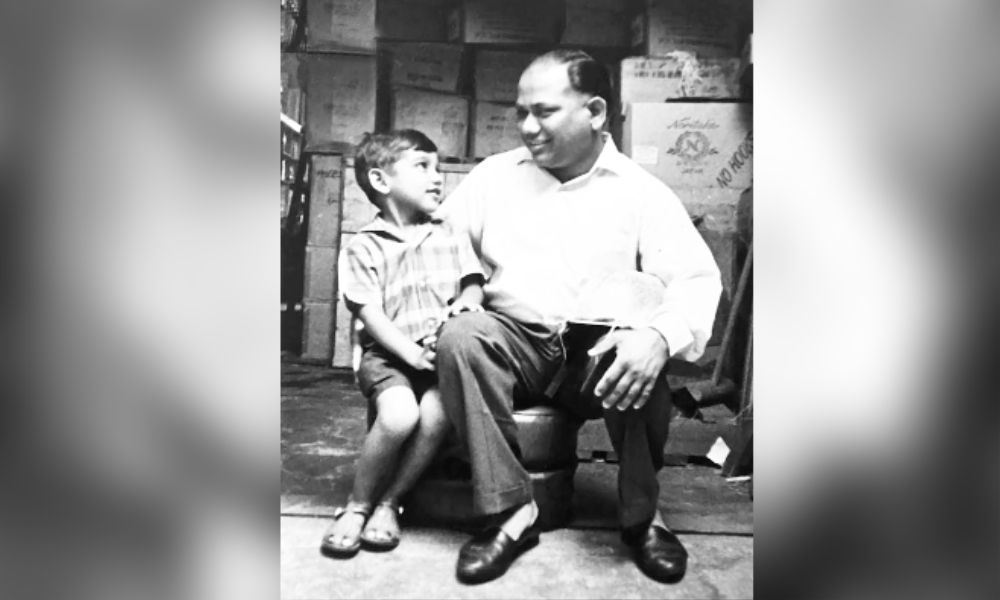
As a highly enterprising and business-minded community, the Gujaratis have contributed significantly towards Penang’s entrepot trade by establishing trading and retail businesses, particularly in textiles, fabrics and carpets.
It is no surprise that the community was renowned as “textile kings”.
One of the earliest and prominent Gujarati firms operating in Penang was AM Essabhoy which was established during the late 19th century and managed by three brothers: AM Essabhoy, AKM Essabhoy and MM Essabhoy. It was involved in a large export and import business.
In Kuala Lumpur, the Doshi brothers were prominent Gujarati businesspersons before the Second World War. CJ Doshi started a successful clothing store in the 1920s along Mountbatten Road (now Jalan Tun Perak) in Kuala Lumpur.
In the 1930s, his brother, Tulsidass Jaganath Doshi established an edible oil company, KL Oil Mill Trading Sdn Bhd in Seremban (thereafter shifted to Kuala Lumpur).
Chhotalal Tulsidass Doshi took over his father TJ Doshi’s business. CT Doshi established the Crown Aluminium Mart which dealt with household goods at Batu Road (now Jalan Tuanku Abdul Rahman), Kuala Lumpur. He also owned a major business of providing supplies to the Malaysian armed forces.
Carving out a niche
The community has continued to carve out a niche for itself in the economy of our nation right up to now.
Among the prominent Gujarati business companies in Malaysia today is Kamdar Sdn Bhd, a one-stop store for an extensive range of textiles and furnishing fabrics founded by Harsukhlal Maganlal Kamdar, and now managed by Kamal Kishor Kamdar with more than 20 stores nationwide.
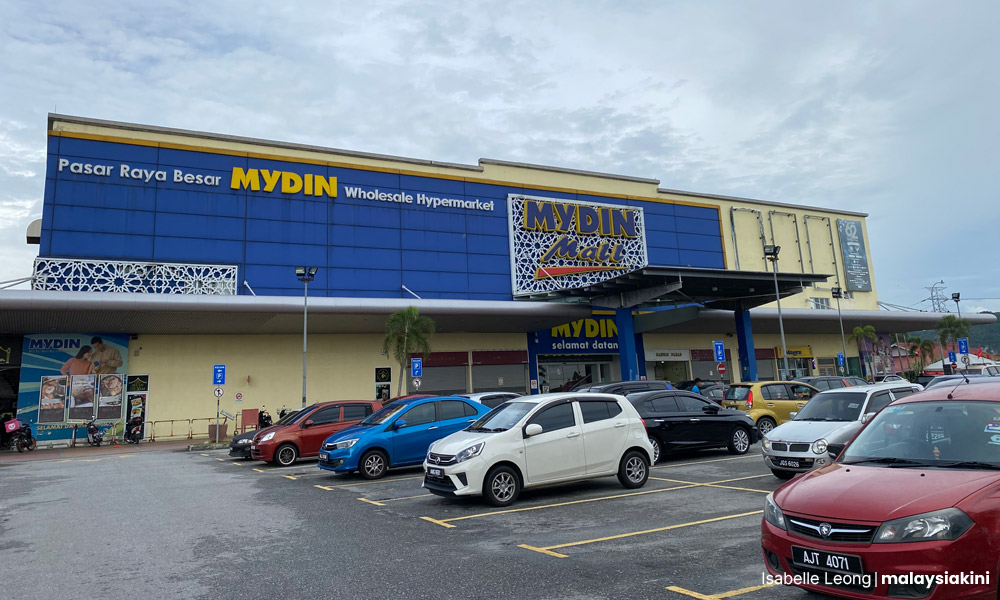
Harshadrai Shantilal Avalani founded Shalani Carpets, which is now managed by his son, Haetal Avalani. Udani Carpets Sdn Bhd was established in 1977 by RB Udani and Ashok Udani.
Prabhulal G Doshi established P Lal Store in 1929 by concentrating on imported men’s shoes for the middle- and upper-income group as well as winter clothing. It is now managed by his grandsons, Shyam and Minesh.
Mydin Mohamed Holdings Bhd, one of the nation’s leading wholesale and retail chains with more than 60 branches nationwide, was originally established as Mydin Mohamed Bros in Kota Bharu, Kelantan in 1957 by Mydin Mohamed Ghulam Hussein; and Neeta’s Herbal (M) Sdn Bhd (with overseas branches in London, Los Angeles, Melbourne, Bangkok and Kazakhstan) which was founded by Neeta Gosalia and her husband, Visvalingam in 1987.
It is worthwhile to note that the Gujaratis were also involved in commodities trading, including tin, palm oil, rubber, cocoa, timber, tea and coffee.
Prominent Gujaratis
Interestingly, Himatlal Hariram Bhatt and Manilal and Sons were among the world’s leading exporters of tin during the period of 1960−80. This is a remarkable achievement considering that the tin industry was largely associated with the Chinese and European companies during colonial Malaya.
Among the early prominent Gujaratis in Malaya were Sir Husein Hasanally Abdoolcader and Hyder Esmail Tyebkhan. Husein was a renowned Gujarati lawyer (read law at Cambridge), politician and community leader. He has the distinction of serving for a record five terms, since 1928, in the Straits Settlements Legislative Council.
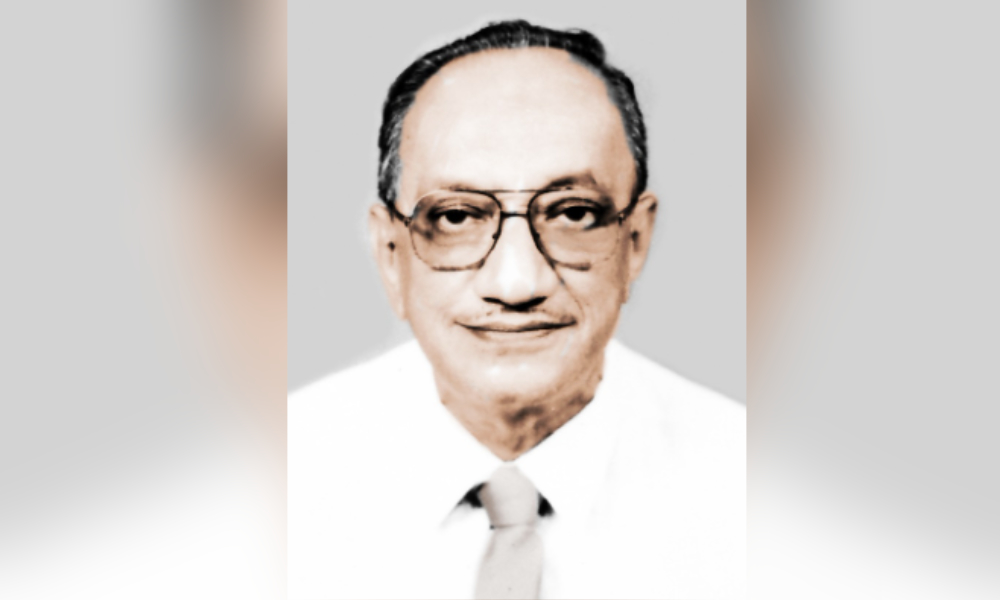
Dubbed as Malaya’s “holiday-maker”, Malaysians owe him a debt of gratitude as he is credited for obtaining public holidays for Deepavali and Awal Muharram.
Furthermore, Husein served admirably both as a nominated member of the Malayan Union Advisory Council and as a member of the Penang Municipal Commission. For the record, Husein is the first Indian in Malaya to receive a knighthood (1948).
In honour of his numerous contributions, there is a small road named after him in Penang.
Husein’s son was none other than the late Eusoffe Abdoolcader, one of the five senior judges suspended during the 1988 judicial crisis. He was a highly respected lawyer and a brilliant Supreme Court judge renowned for his authoritative and elegantly written judgements.
Arguably one of the greatest judges Malaysia has ever had, Eusoffe was lauded by the British press as the “Legal Lion of the Commonwealth”.
Tyebkhan, who served as the president of the Penang Indian Chamber of Commerce for several terms from 1946, was made a Justice of the Peace in 1948. He also served as the president of the Muslim Chamber of Commerce.
In 1953 he was elected a municipal councillor.
Tyebkhan’s son, Taizoon has followed in his father’s footsteps, including being a successful businessperson (industrial hardware and tools besides textiles) and serving as the president of the Penang Gujarati Association for two terms from 2011 and for three terms from 2019.

He also served as the president of the Penang Indian Chamber of Commerce.
Mention must also be made of Ratilal Timbadia, a leading Gujarati businessperson (textiles) and a noted social worker based in Jasin, Malacca. Due to his significant contributions to society, there is a road named after him in Jasin.
Stamping their mark
Besides their significant contributions in business, Gujaratis in Malaysia have made notable contributions in various fields. Among prominent Gujarati professionals are Narendra Jasani, a renowned chartered accountant and chairperson of Grant Thornton Malaysia PLT; Manharlal Ratilal, former group chief financial officer of Petronas; Sanjay Bavisi, award-winning founder and CEO of the EC-Council Group which is the world’s largest cybersecurity technical certification body operating in more than 140 countries.
They also include Kantilal G Patel, former Sabah accountant-general; Manharlal B Gathani, former Sabah Inland Revenue Board director; Jyandralal F Kothari, former acting assistant auditor-general with tenure at the World Bank; Bhupatrai Mansukhlal Premji, a former senior administrative and diplomatic service officer and ex-senior vice-president of the Bumiputra-Commerce Bank; and Himanshu Bhatt, a veteran journalist.
To maintain the Gujarati cultural heritage and to support the interests and welfare of the community, several Gujarati associations were established during the second half of the 20th century.
The earliest was the Gujarati Samaj Penang which was founded by Himatlal Hariram Bhatt in 1950 and formally registered in 1951. Its membership was limited to Gujarati and Marwari Hindus.
For the record, HH Bhatt, together with other leading Gujarati businesspersons (PV Parekh, Hussenibhai Alibhoy Tyebkhan and Ratilal Narechanial), played a leading role in establishing the Penang Indian Chamber of Commerce around 1924 which was the earliest Indian chamber of commerce in Malaysia.
In Malacca, the Gujaratis established the Gujarati Vanik Sangh which was registered in 1958 with CR Jasani as the founder president. Subsequently, the Malacca Gujarati Samaj was formed in 1972 (officially registered in 1973) with CM Seth as the founder president.
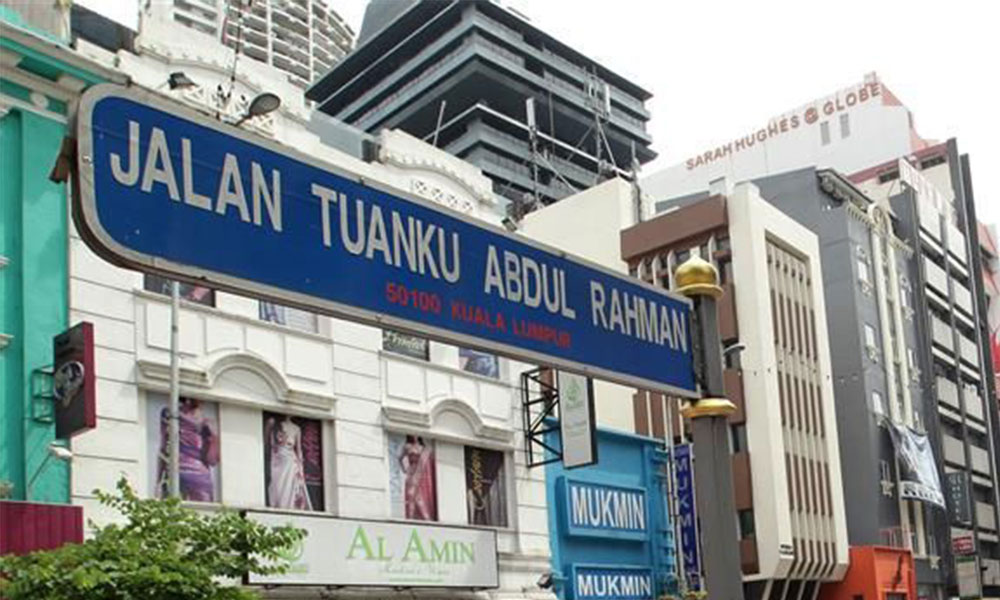
Seth, a prominent community leader, had also served as president of both the Malacca Chamber of Commerce and the Malaysian Associated Indian Chambers of Commerce and Industry.
Community involvement
In Kuala Lumpur, the Gujarati Samaj was formed in 1959 with Jashbhai M Patel as its founder president. Subsequently, the Gujarati Association Wilayah Persekutuan and Selangor (GAWPS) was established in 1978 with Bhupatrai Mansukhlal Premji as its first president.
The GAWPS, which has its own building in Bangsar Park, Kuala Lumpur, is highly active in organising various social, cultural, religious and sporting activities besides providing assistance to the sick and needy in the Klang Valley.
The Penang Gujarati Association was officially registered in 1987 with Arunkumar H Bhatt as the founder president. It organises regular social activities and provides assistance to underprivileged children and the elderly.
The first Malaysian Gujarati youth organisation was the Persatuan Belia Sakti Melaka, which was established around 1970 with Chandrakant S Avalani as the founder president. It is still active today and organises various activities for the Gujarati youth.
Gujaratis who are Jains have been actively involved in nurturing their religion. The Shree Chintamani Parshvanath Bhagwan in Ipoh has the distinction of being the first Jain temple established not only in Malaysia but also in Southeast Asia in 2002.
It is equally noteworthy to mention that Harsukhlal Maganlal Kamdar, the founder of the iconic Kamdar stores, built the first Jain temple in Kuala Lumpur in 2011.
Summing up, Malaysian Gujaratis can take immense pride as a closely knit community of leading businesspersons and professionals who have impacted the nation’s economic growth far more than their numerical strength might otherwise warrant.
Their significant contributions towards nation-building should not go unnoticed. - Mkini
RANJIT SINGH MALHI is an independent historian who has written 19 books on Malaysian, Asian and world history. He is highly committed to writing an inclusive and truthful history of Malaysia based upon authoritative sources.
The views expressed here are those of the author/contributor and do not necessarily represent the views of MMKtT.




No comments:
Post a Comment
Note: Only a member of this blog may post a comment.